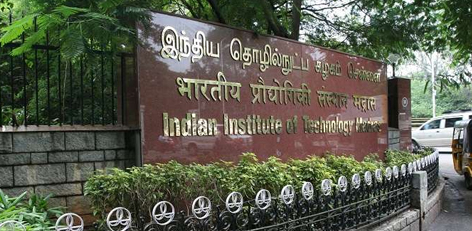6 Major Aspects: Financial Year Monitoring!
Posted on: 11/Mar/2020 11:01:27 AM

A financial year starts from 1st April and ends on 31st March. These 2 dates are very important for the industrialists and the traders. In fact, on the concluding day of the financial year, 31st March, these 2 cadres are almost like students preparing for the major examination!
Why? Because this is the day of Income Tax returns filing, the financial year�s income, expense, saving. Investment, and insurance, etc., are to be accounted for.
In this context, let us see the 6 most important aspects on this:
- The loans extended by banks to organisations are capital loans. This is important for the company to function. In order to obtain this capital loan from the banks, the businessman has to furnish relevant details. The stock statement furnished by the company and the stock data presented in the financial report MUST match! Only based on this, the banks provide Open Cash Credit (OCC) to the companies. However, the data furnished by some companies on the financial aspects do not match the date furnished to the bank amd the data furnished in the Financial Report. Nowadays, the banks do not allow these discrepancies. In case of the mismatch, the companies may have to encounter difficulties in obtaining OCC.
- The company has to focus on the legally pending payments in each financial year. The company employees must take responsibility to ensure that all legally outstanding payments have been made on time! The higher officials/business owners need to check and ensure this. Accordingly, the company should have paid the payments such as ESI (Employee State Insurance), PF (Provident Fund), GST (Goods & Services Tax), TDS (Tax Deducted at Source), and Professional Tax must be paid within the stipulated dates. Only if this has been done, the Income Tax Department will allow it as an approved expense. So, it is all-important to ensure that the above data related payments are made before time.
- �Ratio Analysis� is a scale which facilitates to draw data and analyse regarding company�s money circulation, administration skills, profitability, capability to repay loans, etc. This �Ratio Analysis� plays a crucial role in facilitating companies to get loans from banks. If these are calculated before the year end and presented in a positive way, you may improve the prospects for additional loans
- Generally, an auditor for the company can be compared to the doctor for the family! Just as the doctor checks the patient and prescribes medicine, the auditor analyses and reviews the company he works for coming up with frequent suggestions for the betterment of the company. His suggestions will be based on the analysis of various tax situations, financial status, and profitability. His suggestions would ensure no rules have been violated on the financial front. So, approach your auditor to obtain all valuable suggestions and implement them.
- Special effort must be taken to collect the recoverable loans, advances, and irrecoverable loans before the financial year end. For example, a company might have given advances to several employees throught the yer for various occasions. Evenen travelling advance might have been given. The complete account details regarding such advances paid must be sought by the accountants in time or before 31st March.
- In the present system, the companies seeking loans will have to get their credit ratings. The loan rates of interest are fixed based only on credit rating. So, it is essential to keep the credit rating at advantageous level. For example, let us assume that the company is granted a working capital loan of Rs. 3 Crores. Only 2.5 Crores have been spent. Some bank managers advise that the balance Rs. 0.5 Crore to be kept in the current account. The reason for this may be that that amount had been the target of the company for that year! However, if this advice is taken and the balance transferred to the current account, the drawing power in the Credit rating may get affected! Like this instance, one should take care that the company is not affected by window-dressing done for others!
Only an attention-drawing, the attractive balance-sheet can procure loan for the company! This has the charm to attract the investors and banks. So, all companies should be watchful over the financial year-ending period.Especially, the small/micro/mini industries do not pay deep attention to these factors! If they monitor these aspects as well, there is no doubt whatever that banks will join with you in your growth!
All the best!








